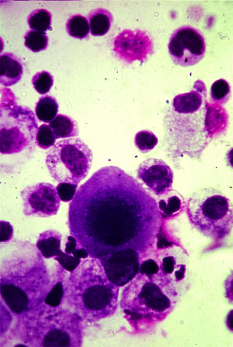Cancer moves mapped
 International researchers have identified the genetic pathways cancers use to resist treatments, paving the way for more targeted therapies.
International researchers have identified the genetic pathways cancers use to resist treatments, paving the way for more targeted therapies.
A new study maps how resistance evolves in colon, lung, and Ewing sarcoma cancers, offering insights that could improve treatment strategies for drug-resistant cancers.
Scientists from the Wellcome Sanger Institute, EMBL’s European Bioinformatics Institute (EMBL-EBI), Open Targets, and other collaborators used CRISPR gene-editing technology to simulate drug resistance in lab models.
This approach allowed them to bypass the usual reliance on patient samples collected over time, accelerating the research process.
The study categorises drug resistance into four distinct pathways.
First, canonical drug resistance mutations reduce drug effectiveness by preventing it from binding to cancer cells as intended.
Secondly, drug addiction mutations make cancer cells reliant on the drug to grow, suggesting potential benefits of “drug holidays”, where temporary cessation could weaken the cancer.
Third, driver mutations allow cancer cells to activate alternative growth pathways, enabling them to bypass the original drug’s blocked pathways.
Finally, drug-sensitising variants make cancers more responsive to different treatments, enabling personalised therapy based on a patient’s genetic profile.
The researchers tested ten cancer drugs, including some approved and others in clinical trials, using cancer cell lines and organoid models.
The findings suggest that repurposing or combining existing drugs could address resistance and hasten the introduction of new treatments.
Understanding how drug resistance develops could make it easier to adapt treatment strategies.
“Cancer cells developing resistance to treatments is a huge problem, and having a rapid way to identify these mutations in patients and understand how to combat them is key to treating cancer,” says Dr Matthew Coelho of the Wellcome Sanger Institute.
The research also highlights specific genetic mutations that could act as biomarkers, guiding treatment choices based on individual genetic profiles.
“The functional framework we have built allows researchers to start to piece together a complete map of common DNA changes seen during cancer treatment, adding to our collective knowledge,” says researcher Dr Magdalena Strauss.
This study represents a shift in how drug resistance is tackled, using gene-editing and single-cell techniques to create faster, more detailed understanding of resistance mechanisms.
The full report is accessible here.








 Print
Print